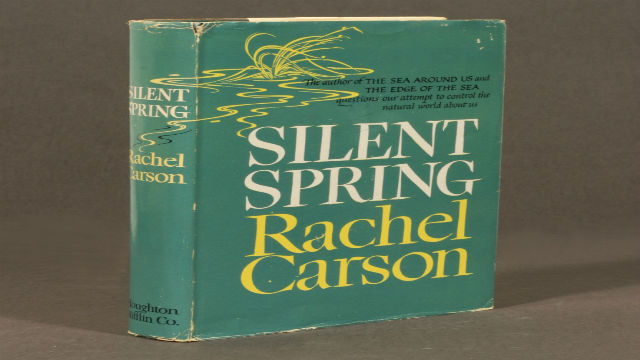Writing the Rich: What Is it Like to Be a Banker?

Christian Lorentzen makes an excellent point excellently:
Tougher for the novelist are the tasks of rendering convincing characters across the class spectrum and capturing economic intricacies in a way that’s both cogent and readable. I’ve not heard of any institutions that offer joint MFA-MBA degrees.
The impulse to become a writer suggests a fundamental fiscal incompetence. Fiction writers, often deriving their income from their status as writers (by teaching) rather than from their actual writing, tend to carve out lives somewhere within the middle class but find themselves at a remove from the higher and lower echelons of economic activity. The campus—a zone that encourages all participants to make a pretense of classlessness—has become the default home of most novelists, and this may partly explain why class is an easier subject to avoid now than in the days of Wharton, Fitzgerald, or Ellison. The love triangle in Jeffrey Eugenides’s The Marriage Plot tilts not according to a geometry of class but according to the characters’ reading tastes. In any case, authors’ actual relationships to money don’t make for thrilling plot twists. Nobody wants to read a novel that climaxes with a successful book deal. There might, however, be a decent conceptual fiction to be written under the title A History of My Student Loans.
Milo Burke, the narrator of Sam Lipsyte’s 2010 novel, The Ask, makes a useful class distinction after an encounter with a governor’s daughter: “She was from the people who kept everything. I was from the people who rented some of everything for brief amounts of time. I knew I deserved no pity, would get none from the people who kept everything. They only pitied the people with nothing at all.” I don’t think it’s rash to assume that most American fiction writers come from and remain the people who rent things, and it’s worth considering how much sympathy they extend to people wealthy enough to keep things. So pity the novelist who sets out to write about the rich: Demonizing bankers may be an effective political tactic, but it’s not an option for a novelist trying to draw well-rounded characters, or for one who wants to offer an understanding of contemporary society that becomes more than a class grievance.
That passage in The Ask hurt when I read it. Anyway, the problem Lorentzen identifies is real, and he ably adduces evidence of it in a number of recent novels. Lorentzen’s mention of “class grievance” called to mind Robert Nozick’s account of “wordsmith” intellectuals’ attraction to socialism and hostility toward capitalism. According to Nozick:
In the currency the schools had to offer, the smartest constituted the upper class. Though not part of the official curricula, in the schools the intellectuals learned the lessons of their own greater value in comparison with the others, and of how this greater value entitled them to greater rewards.
The wider market society, however, taught a different lesson. There the greatest rewards did not go to the verbally brightest. There the intellectual skills were not most highly valued. Schooled in the lesson that they were most valuable, the most deserving of reward, the most entitled to reward, how could the intellectuals, by and large, fail to resent the capitalist society which deprived them of the just deserts to which their superiority “entitled” them? Is it surprising that what the schooled intellectuals felt for capitalist society was a deep and sullen animus that, although clothed with various publicly appropriate reasons, continued even when those particular reasons were shown to be inadequate?
[…]
It is not surprising that those successful by the norms of a school system should resent a society, adhering to different norms, which does not grant them the same success. Nor, when those are the very ones who go on to shape a society’s self-image, its evaluation of itself, is it surprising when the society’s verbally responsive portion turns against it. If you were designing a society, you would not seek to design it so that the wordsmiths, with all their influence, were schooled into animus against the norms of the society.
So, if Nozick’s right, it’s not only ignorance of the inner workings of business, and of the money-making classes, which leaves fiction writers unable to write insightfully about the commanding heights of the economy. Simple innocence would not explain the urge to demonize bankers Lorentzen warns writers against, but Nozick’s conjecture might.
I think Lorentzen is right that “The campus—a zone that encourages all participants to make a pretense of classlessness—has become the default home of most novelists…,” and he’s also right to suggest that on campus classlesness is pretense. Because, of course, Eugenides’ Brown is a place where class distinction is reinforced and rehearsed — especially among the wordsmiths.
Steven Johnson (Sam Lipsyte’s roommate at Brown!) wrote an interesting piece in the New York Times, coinciding with the release of Eugenides’ The Marriage Plot, about the Brown semiotics scene in the 80s:
The obscurity of the field was partly the point. In Jeffrey Eugenides’s new novel, “The Marriage Plot,” which takes place in part at Brown in the early 1980s, the heroine first stumbles across the semiotics program when a friend comes home with a copy of Jacques Derrida’s “Of Grammatology”: “When Madeleine asked what the book was about, she was given to understand by Whitney that the idea of a book being ‘about’ something was exactly what this book was against, and that, if it was ‘about’ anything, then it was about the need to stop thinking of books as being about things.”
Greek for the “science of signs,” semiotics as a field dates back to fin de siècle philosophers and linguists like C. S. Peirce and Ferdinand De Saussure; in modern times it is most commonly associated with Umberto Eco. The general thrust of pure semiotics is a kind of linguistics-based social theory; if language shapes our thought, and our thought shapes our culture, then if we are looking for a master key to make sense of culture, it makes sense to start with the fundamental structures of language itself: signs, symbols, metaphors, narrative devices, figures of speech. You could interpret a Reagan speech using these tools as readily as you could a Nike ad.
A master key to the culture: a pretty powerful thing to have. And then there’s this:
“Going to college in the moneymaking ’80s lacked a certain radicalism,” Eugenides writes. “Semiotics was the first thing that smacked of revolution. It drew a line; it created an elect; it was sophisticated and Continental; it dealt with provocative subjects, with torture, sadism, hermaphroditism — with sex and power.”
So we have a sophisticated, worldly elect among all that Ivy League classlessness. And it was already attracted to “revolution” (against what?!) and allergic to “moneymaking.” Not that the elect has fared poorly:
[A] striking number of semiotics students have gone on to influential careers in the media and the creative arts. … NPR’s Ira Glass, the novelist Rick Moody, the filmmaker Todd Haynes, Eugenides himself — all spent their formative years in the semiotics program. The antihero of Sam Lipsyte’s hilarious 2010 novel, “The Ask,” takes theory classes at a college clearly modeled on Brown. (Lipsyte was in fact my roommate for most of my college career; I like to think the stinging parodies of semio-babble in that book were modeled on his other friends.)
This is a pretty impressive set of white guys. They are indeed, as Nozick puts it, “the very ones who go on to shape a society’s self-image, its evaluation of itself.” But Ed Conard probably spends more renovating a bathroom than their combined net worth, and that’s got to rankle. What does Ed Conard know about Saussure?!
All that said, Nozick’s explanation is a bit too sociological for me. Perhaps it’s true, as Lorentzen says, that “The impulse to become a writer suggests a fundamental fiscal incompetence.” But what stands behind the impulse to become a writer? Whatever it is, maybe it also predicts relatively weak pecuniary motivation. I’d guess a largely native strain of personality has a good deal to do with literary aspiration. If I were to go over to the Dey House and force the fiction MFA students take a Big Five personality survey, I’m confident I’d find a group almost uniformly super-high in “openness to experience.” By itself, high openness predicts left-leaning politics. Indeed, as Jost and colleagues have argued, personality is fairly ideological. This is important.
If the personality traits that generate liberals are also a goodly part of the recipe for making literary novelists, then “write what you know” is, in effect, instructions to remain inside a left-leaning mind’s experience or the world. Now, high openness is very strongly correlated with curiosity and empathy. So high-openness novelists may want to understand the subjectivity of bankers. Bankers, on the other hand, probably couldn’t care less about the rich inner world of writers. But the motivation to enter into a foreign perspective doesn’t guarantee success. It can be exceedingly hard for a super-high openness, super-low conscientiousness (and thus super-liberal) writers (like me) to imagine, must less connect sympathetically with, the motivation of super-low openness, super-high conscientiousness (and thus super-conservative) business-folk. Mostly, we do a terrible job. In some ways, conservatives understand liberals better than liberals understand conservatives.
So that’s three things. First, novelists just don’t know enough about business or people in business to write about them well. Second, novelists are wordsmith intellectuals who feel poorly treated by the distributive principles of market societies and tend to resent those who thrive in its non-semiotics-based class structure. Third, novelists have left-leaning ideological personalities that, on the one hand, make them curious and empathetic, but, on the other hand, make it hard for them to imagine what it’s really like to experience the world as a right-leaning ideological personality.





